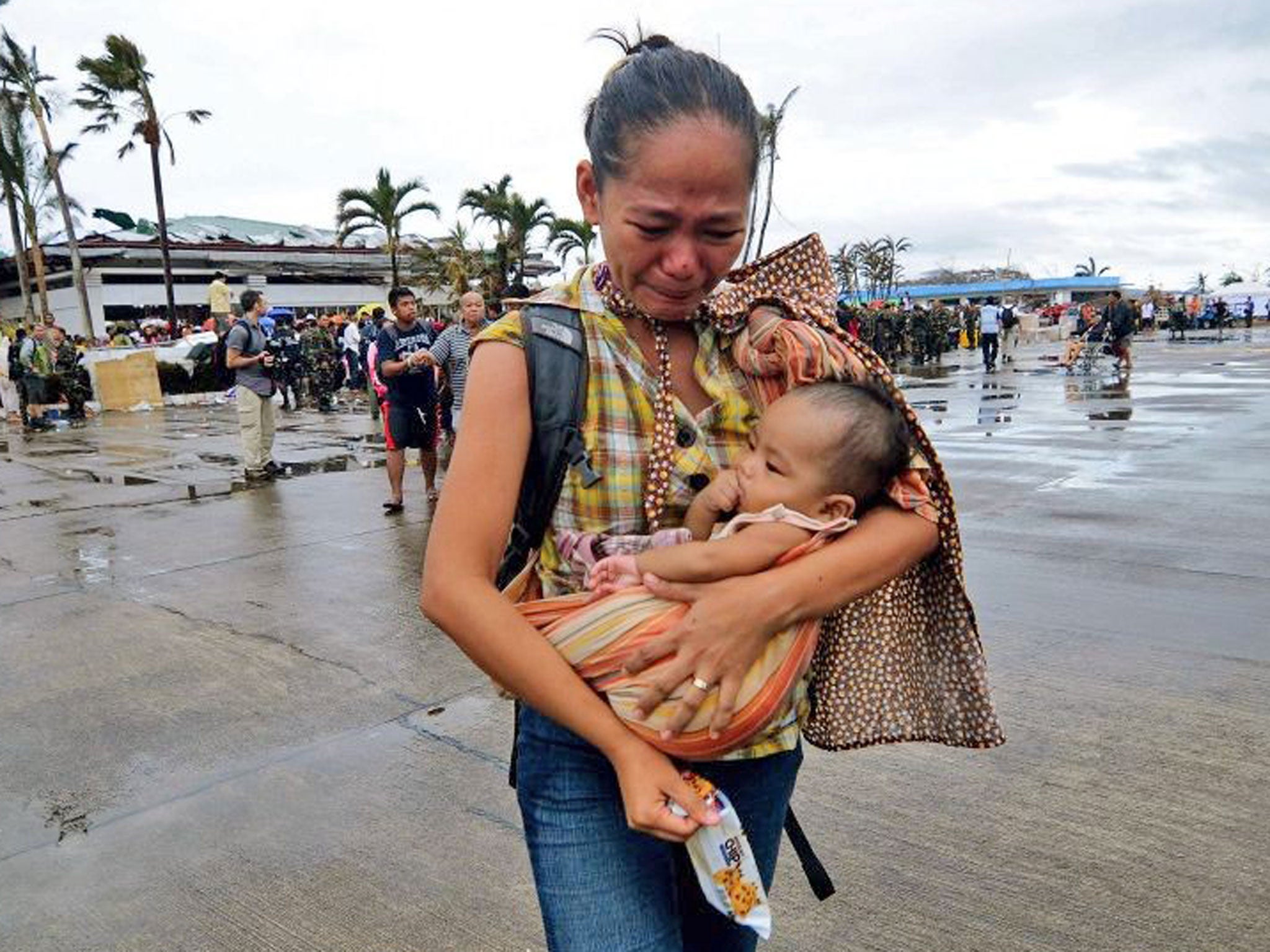Typhoon Haiyan: The scale of this catastrophe was preventable
You cannot stop a storm, but you can avert a disaster – this one, in part, was man-made

When terrible things happen, angry responses can appear unseemly. Grief and sadness might seem like more appropriate responses to events which even those without faith might describe as an act of God.
But like many others, when I watch the news coming out of the Philippines right now, I am angry. You cannot stop a storm, but you can prevent a disaster, and this one was, in part, man-made. While Yolanda was only one of many storms that batter the Philippines each year, it must be remembered that the country suffers disproportionately from rising sea levels caused by climate change - exacerbating the storm surge and flooding which proved so deadly.
Many have seen Naderev Sano, the diplomat leading the Philppine delegation at the UN climate summit in Warsaw, speak movingly about the plight of his people and of his own family in the aftermath of the storm. His sadness is cut with anger - he refuses to see Yolanda as simply a natural disaster:
"Disasters are never natural. They are the intersection of factors other than physical. They are the accumulation of the constant breach of economic, social, and environmental thresholds. Most of the time disaster is a result of inequity and the poorest people of the world are at greatest risk because of their vulnerability and decades of maldevelopment, which I must assert is connected to the kind of pursuit of economic growth that dominates the world; the same kind of pursuit of so-called economic growth and unsustainable consumption that has altered the climate system."
Sano hopes that the 2013 UN climate summit will result not only in a deal on greenhouse gas reductions for developed countries, but also for a legal framework ensuring that the countries which bear the true cost of climate change will receive compensation for the loss and damage they have already sustained. This is an important advance on the idea that rich countries must help pay for adaptation and mitigation measures. It means that they must acknowledge the suffering which they have already helped create - and pay up. And, as Sano so bluntly articulated, they must acknowledge their role in deepening poverty, which has sharpened the pain of so many affected by Yolanda.
After the storm, the Philippines deserves every aid dollar it receives; the efforts of ordinary people deserve special thanks. But international politicians’ solidarity with the Philippines needs to come before the storm. The problem is that providing relief is cheaper than saving lives, in the short run. The $301 million that the UN is requesting in emergency aid is only a tiny sum in comparison to the kind of investment that countries like the Philippines need to prevent harm in the future. Try $100 billion a year - the size of the UN’s admittedly controversial Green Climate Fund, which aims get money to poorer countries for adaption and mitigation. In any case, a recently released Oxfam report reveals that rich countries haven’t yet met their Doha pledges of $8.4 billion, and that most funding has “either plateaued or decreased”. Even worse - a lot of that money is regular development funding, just renamed climate finance.
Pinoys have a funny habit of referring to their homeland as “only a small country”. Well, they should stop selling themselves short, since everyone else is. The Philippines is a country of almost a hundred million people, the twelfth largest population the world. So many millions of those live in the path of typhoons like Yolanda, and from what we’ve seen, the international community (whatever that is) counts their lives pretty cheaply.
For too long, Filipinos have been impoverished by bearing the externalized costs of rich countries’ development. From the Spanish yoke to American colonization to Japanese occupation, and then to a murderous, Western-backed dictatorship, control over the fate of the Philippines has always been held outside. Sadly, as COP19 is likely to demonstrate, that remains true.
Like so many millions whose families have suffered because of climate change, Naderev Sano understands that responsibility should be shared in common, and costs should be paid by those who benefit. I hope that the force of his anger will help produce a result that no-one is expecting at COP19.
Join our commenting forum
Join thought-provoking conversations, follow other Independent readers and see their replies
Comments
Bookmark popover
Removed from bookmarks